In a previous blog entry I was arguing that we can imagine replacing what is now called “spiritual” development with a more appropriate and inclusive term: metaphysical development. Based on the assumption that a spiritual quest is nothing more than a persons’ attempt to give their life a meaning, by answering some fundamentally metaphysical questions: What is reality? Why do we exist? “Why is there something rather than nothing?”
Since then, my views have evolved and I have come to the conclusion that metaphysics might be somewhat limiting, and that, in fact, all branches of philosophy: metaphysics, epistemology, axiology and logic need to be addressed in the quest for what could be seen as a spiritual journey. Two of them: metaphysics and axiology more than the others, though I will argue later that exposing young people to logic and its principles is vital for developing critical thinking and healthy scepticism – traits in dire need in today’s world.
Below you can find the YouTube version of this (rather long) article, of you prefer!
As a quick reminder
Metaphysics is all the deep stuff you are thinking about when you’re watching a sunset, listening to Leonard Cohen or getting high: the birth of the Universe, the existence of free will, the nature of reality, the number 42. It includes questions about the nature of consciousness and the relationship between mind and matter.
Epistemology looks at how we know the little we know. It deals with the limits of human knowledge and the relation between belief and truth. In epistemology, there are 4 ways to gain knowledge: divine revelation, experience, logic and reason, and intuition.
Axiology considers principles and values. It is divided into two main areas:
- Ethics is the questioning of societal morals and personal values.
- Aesthetics is the examination of what is beautiful, enjoyable, or tasteful.
Whenever you discuss human rights, culture, gender equality, slavery, cheating, crime and punishment or if rock is better than rap, you’re entering the territory of axiology! As none of them are natural laws but just some temporary and localised human shared narratives.
Logic is the branch of philosophy that seeks to organize reasoning. There are many ways to classify logical reasoning but the most important are:
- Deductive reasoning, also known as “top-down” logic, is when you take some true general statements, or premises, and use them to draw a logically sound conclusion. Here’s the classic example: All men are mortal. Socrates is a man. Therefore Socrates is mortal.
If the premises are true the conclusion is guaranteed to be true.
The main danger for deductive reasoning is overgeneralization: Swans are white. Julia is white. Therefore Julia is a swan!
- Inductive reasoning, bottom-up logic, is somehow the opposite: it involves drawing a general conclusion from a set of specific observations. Humanity used inductive reasoning for its entire history: Every day so far, the sun has risen in the East and set in the West. Conclusion: The sun will probably continue to rise in the East and set in the West. A conclusion reached without astronomical calculations and concern for the laws of physics.
With inductive reasoning, the conclusion might be true, and it has some support, but it may nonetheless be false.
During the Black Death in the 14th century, Jewish communities appeared to be dying in fewer numbers than their Christian neighbours. Many saw this as evidence that the Jews were intentionally spreading the disease by poisoning wells, rivers and springs. As a result, Jewish people across Europe were tortured and killed.
- Abductive reasoning is when you take a set of observations and proceed to the likeliest possible explanation for the set. Abductive reasoning yields the kind of daily decision-making that does its best with the information at hand, which often is incomplete.This is very similar to how doctors work on patients by taking symptoms to make a diagnosis.
I’m not going to go deeper into each of them, there are literally millions of resources able to do it better than me, but I’ll focus on
- why opportunities of philosophical reflection are important in non-formal education and how they might not always be overlapping traditional spiritual moments
- Why Scouting is well positioned to offer those opportunities and
- how almost anyone can create these opportunities, even if their name is not Plato nor Kant.
Philosophical Reflection
The “big questions”, whether they’re about truth or beauty, friendship or fairness, what’s right or what’s real, are a natural, even essential, part of human development. We are the only species (that we know of) able to reflect on these and this has contributed significantly to our success on the planet. They are essential parts of what makes us human.
If we consider the 5 Ws associated with modern spiritual development in Scouting
- Welcome
- Wonder
- Work
- Wisdom
- Worship
Philosophy could contribute to at least 4 of them (with the possible exception of “worship”) and will bring a welcome addition, especially in today’s realities, because it promotes logical, critical and reflective thinking and the development of reasoning competence. Philosophy is thinking dedicated to the improvement of thinking. It is both open-ended and rigorous.
Philosophy taps children’s natural curiosity and sense of wonder. It engages them in the search for meaning and enriches and extends their understanding. It strengthens thinking and reasoning skills and builds self-esteem. It helps to develop the qualities that make for good judgment in everyday life.
By exploring concepts like truth, reality, knowledge, evidence, freedom, justice, goodness, rights, mind, identity, love, friendship, rules, responsibility, action, logic, language, fairness, reason, existence, possibility, beauty, meaning, self, time, God, infinity, human nature, thought, etc. – philosophical reflection goes beyond traditional spiritual development topics and contribute to achieving a set of skills which is now more important than ever in human history.
Peak Moments
Transformative learning, the one that actually makes a difference in the way a person perceives and understands the world, is often achieved when the brain is properly prepared for it.
In Scouting, we try to do this by applying the “learning by doing” principle not only for technical skills, such as setting a camp or navigating a terrain, but also in the emotional or social areas.
By immersing young people in a disruptive experience, such as projects involving people living in difficult circumstances or in less privileged areas, we intend to develop empathy and tolerance. Because “walking in someone else’s shoes” is a failsafe way to ensure one sees the world from more than one perspective.
Preparing the brain to the power of spiritual development was understood since prehistory, and one only needs to look at the paintings in Lascaux, the atmosphere in the medieval cathedrals, Oriental meditation techniques or the hypnotic rituals of the indigenous peoples of the Americas. We do not ask fundamental questions and probably won’t achieve a deeper understanding and appreciation of our lives while washing dishes.
We rarely camp in Lascaux or experience ayahuasca. Nevertheless, we have plenty of opportunities to get people in the right state of mind to ask and ponder on those “big questions” – probably more than any other off-school activity.
This is mainly because some of the elements of our educational method, namely the peer group, the shared values expressed by the Scout Law, the symbolic framework and, most of all, life in nature, are ideal backdrops to explore concepts which underpin our existence as human beings.
A quiet morning filled with the sounds of the countryside, a sunset by the sea, the last steps before reaching the summit, the Milky Way in a clear night, an evening of storytelling at the campfire or, in my case, the quiet solitude of the underground world, are moments and places where an ineffable term like “beauty” becomes tangible and has a direct, physiological impact on the brain and state of consciousness.
These are moments when we realise how insignificant we are in the great scheme of things, but also how wonderfully unique and irreplaceable.
I am 100% aware that the colours are just massless photons of various energies hitting atoms in my retina. There is no such thing as “red” outside my own interpretation of the effect of those interactions. Music is just a pattern of compressed air vibrating my eardrum. There is nothing “beautiful” about it outside my brain’s interpretation of the nervous impulses resulting from those vibrations.
However, when walking in a forest on a crisp autumn morning or listening to Pink Floyd, I cannot help but wonder how a 1.5 kilograms of basically fat can produce the string of emotions and feelings which makes our lives worth living. And those are the only moments when my strict materialistic and deterministic view of the world is shaken. Shaken, but not stirred!
Being it the effect of dopamine or something more transcendent, it is real, nevertheless!
The Florence syndrome, akin to what I described earlier, is named after Stendhal’s visit to the Basilica of Santa Croce, about which he wrote: “Absorbed in the contemplation of sublime beauty … I reached the point where one encounters celestial sensations … Everything spoke so vividly to my soul.”
Creating and properly managing these opportunities – no one is inclined to ponder on the meaning of life if they’re half dead while climbing a mountain – will allow young people to get in a state which we can then exploit by planting the right seeds of philosophical reflection.
A long time ago, a fellow Scout leader from Romania, one of those natural-born educators whose stories were listened with mouth agape by children for tens of years, told me that, in a camp, the most important thing to plan for is a great meal in the middle of the camp and for the last dinner. The rest is irrelevant, it can be innumerable iterations of pasta (which is, generally, the case). Now, you need to know that, in Romanian Scouting, meals are among the most important elements in the camp and they can really set the tone to the entire event!
I thought about this as being the Scouting equivalent of folk tales (though I knew it to be quite true, from personal experience) until a few years back when I read a book called “Your Deceptive Mind”, in which some experiments on the flaws and fabrications of memory are described.
One of them involved interviewing patients who had undergone a colonoscopy examination!!!! – a procedure universally described as being decidedly unpleasant. Patients in the study group had colonoscopies that lasted from 4 to 60 minutes, but the duration of the procedure did not predict how they felt about it afterwards. Instead, it was the strength of their discomfort at its most intense, and the level of discomfort they felt towards the end of the procedure.
These studies support the so-called Peak-End rule – that our perceptions about an experience are determined by how it feels at its most intense, and how it feels at the end. The actual duration is irrelevant. Our memories filter how we feel about the things we’ve done and experienced. And they are defined more by the moments that seem most characteristic – the peaks and the finish – than by how we actually felt most of the time during the experience.
Certainly, peak experiences happen almost naturally in our Scouting activities – what I put forward is that we, as Scout leaders, carefully plan and actually use them as a foundation for introspection and philosophical reflection.
Thought Experiments
Getting people in the right state of mind is obviously only one part of the job. Though many people will naturally use their state of elation to have a spiritual reflection, as educators, we might want to channel the experience and also use the value of the group of peers. For this, there are several ways to encourage reflection – other than bluntly asking “What do you think reality really is?” while gazing across the savanna in the dusk!
One way, which works well because it does not imply the dogma of a “right” or “wrong” answer, but merely encourages personal reflection, is thought experiments and/or paradoxes.
Though thought experiments can be experienced alone in the shower, Scouting adds the advantage of a group of peers with a similar set of values. In this community of inquiry Scouts learn to respect, listen to and understand a diverse range of views, adding and expanding their own understanding of the matter. The other advantage is that the leader does not have to have an expert on the topic!
In philosophy, as in Scouting, we should learn HOW to think, not WHAT to think!
In the most famous example of the power of thought experiments, Einstein used them to formulate his revolutionary theories, long before technology able to perform relevant experiments to confirm them was invented.
But the power of “what if…” scenarios for spurring deeper investigation and reflections is available to everyone, as long as the right story is presented.
There are many such examples – and I have used quite a few of them with relative success, with young people starting at the age of 11. Here are some of them, with relevant links available.
Metaphysics
The Ship of Theseus
Theseus is well known in Greek mythology, and most recognized for killing the Minotaur and for his grand sea travels. He goes away for months, he defies heavy storms and defeats all sorts of sea monsters. Of course his turbulent sea voyages leave their mark, and Theseus often has to go back to the shipyard for repairs.
The ship master replaces the damaged planks and sails, and the ship goes back to sea. But not for long. As the years go by, more sections of the ship have to be replaced. Pretty soon every piece is replaced right down to the very last plank.
The ship now consists entirely of new materials. Is it still the same ship?
Just imagine that the ship master has the bright idea of taking all the old parts from the ship and putting them back together again. Does that mean that the ship will exist twice? And which one is the real one? The new one or the old one that’s been reconstructed? Are they both real or neither of them?
People are just the same. Over time our bodies change like the ship of Theseus. It takes
no more than seven years for our cells to renew themselves completely. Our values, opinions and interests also change. We might look at things differently than before and we may also think differently, but the fact is we are still the same person we were before despite all the changes. We are the original!
Or are we? In 1987, the philosopher Derek Parfit imagined a variant of the Ship of Theseus paradox. Imagine a human, Dave, entering a “teletransporter”, a machine that puts him to sleep, records his molecular composition, breaking him down into atoms, and relaying it to Mars at the speed of light. On Mars, another machine re-creates Dave (from local stores of carbon, hydrogen, and so on), each atom in exactly the same relative position. Would Dave on Mars still be the same Dave? Well, the obvious answer seems to be yes: He was on Earth and now he’s on Mars; however, it is not that simple. We took Dave apart atom by atom. Doesn’t that mean we killed him in the process and just cloned him on Mars, or did we actually transport Dave?
Now let’s add a twist. Instead of destroying Dave’s original body, it is preserved during the scanning process. So now we have TWO copies of Dave: the original one, and the replica. Both of them are identical down to the last atom, and should be behaviourally indistinguishable. But surely he can’t be in two places at once! If he survived at all, isn’t it obvious that he survived as his original self, not the clone? But what’s the difference between Dave’s original self and the clone anyway?
Reflection points
- What establishes our identity?
- Why do we stay who we are even though we’re constantly changing?
- What is the nature of consciousness?
Movies to consider



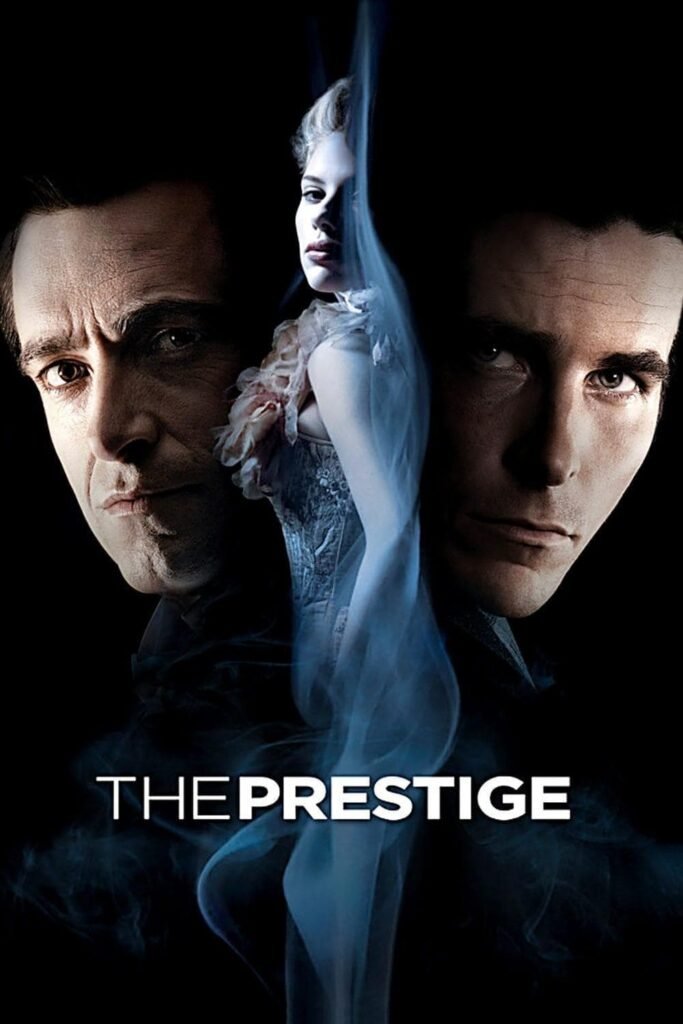
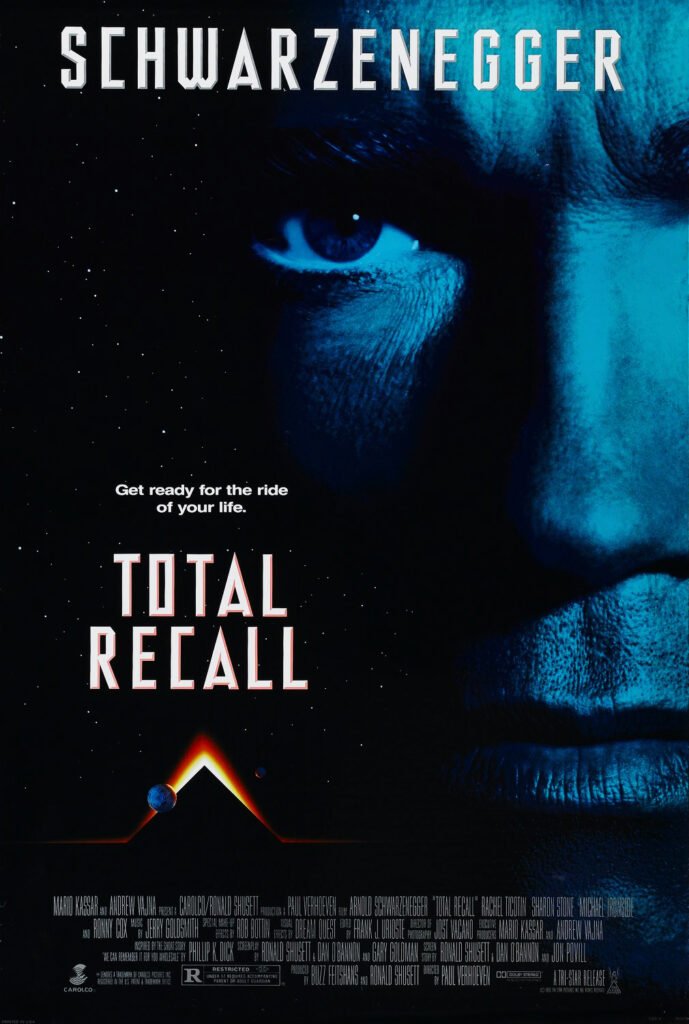
Other metaphysics thought experiments
Epistemology
Plato's Allegory of the Cave
Imagine a cave, where hundreds of human beings are tied up, unable to move their heads, since their birth, with no knowledge of the outside world. They just stare straight ahead all day long. But they do get a little entertainment, as there’s a shadow-puppet show projected on the wall in front of them, with a fire burning in the back for light. Since this show is all these poor people can see, they think it’s the best, most awesome reality ever. They chat about it, gossip, call people names, you know, the usual
So that’s how life goes down in the cave until, one day, one of the prisoners manages to break free and crawls outside for the very first time.
The sunlight hurts his eyes and he finds the new environment disorienting. When told that the things around him are real, while the shadows were mere projections, he cannot believe it. The shadows appeared much clearer to him.
But gradually, his eyes adjust until he can look at reflections in the water, at objects directly, and, finally, at the Sun, whose light is the ultimate source of everything he has seen.
Feeling sorry for all his fellow prisoners, the freed prisoner goes back down and explains to everyone that they’re all trapped in this massive cave, and that everything they think is real is an illusion.
Guess what? They think he’s nuts. That the journey has made him stupid and blind, and they violently resist any attempts to free them.
Plato introduces this passage as an analogy of what it’s like to be a philosopher trying to educate the public. Most people are not just comfortable in their ignorance, but hostile to anyone who points it out.
Reflection points
- What, in today’s world, can we consider the equivalent of the shadows projected? Media?
- What shackles our minds?
- How can we “free” ourselves?
Movies to consider

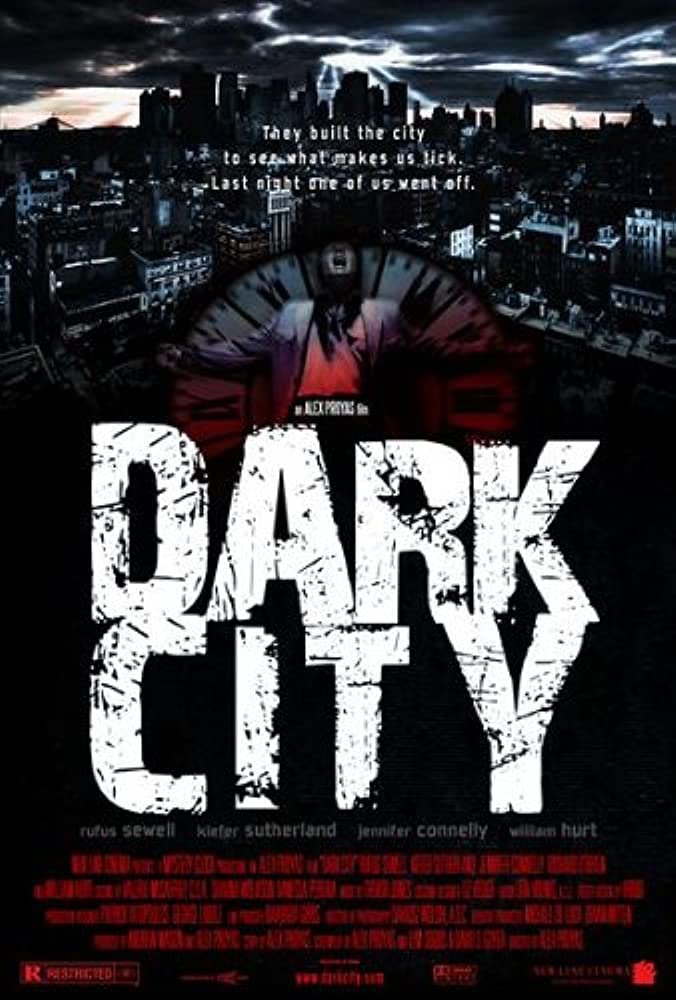

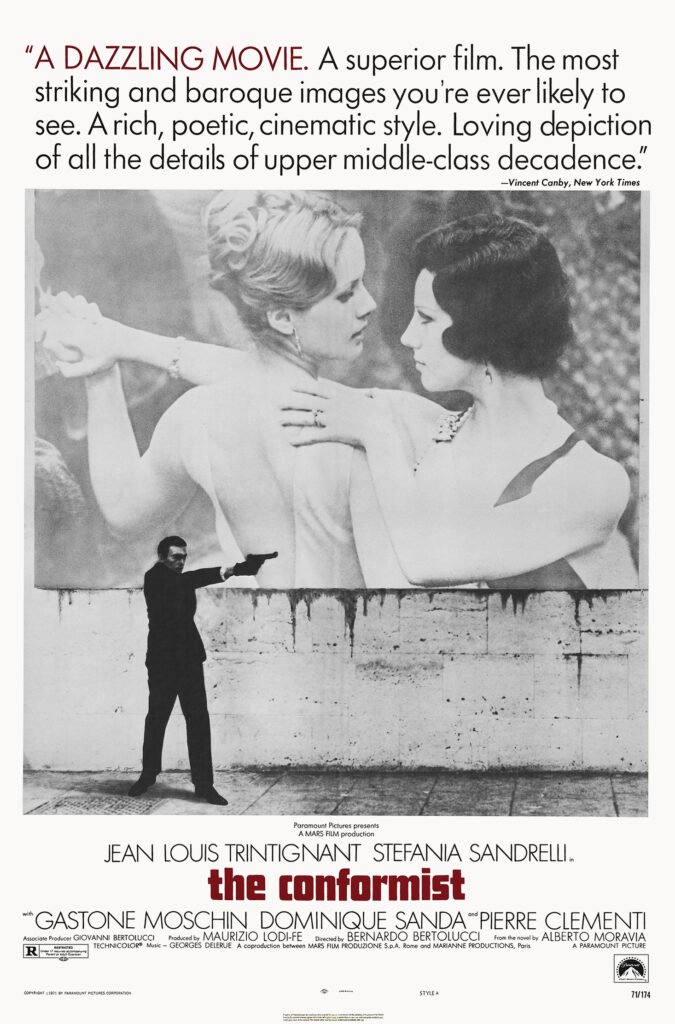

Other epistemology thought experiments
Axiology
The Train Dilemma
You’re standing on a footbridge overlooking a railway track, when you see a runaway train hurtling toward you.
The brakes have clearly failed. Ahead are five people tied to the track. If you do nothing, they will be run over and killed. Can these five be saved?
There’s a fat man sitting nearby, who is also watching the train. If you were to push him over the footbridge, he would tumble down and smash on the track below. He’s so obese that his bulk would bring the train to a shuddering halt. Sadly, the process would kill the fat man. But it would save the other five. Should you push the fat man?
Would you change your mind if, instead of 5 people, there would be 5 babies? Or 5 members of your family?
Reflection points
- How can we measure the morality of our actions?
- Is it permissible to cause harm if the action leads to overall greater good?
- Is there a difference between killing and letting die?
Movies to consider

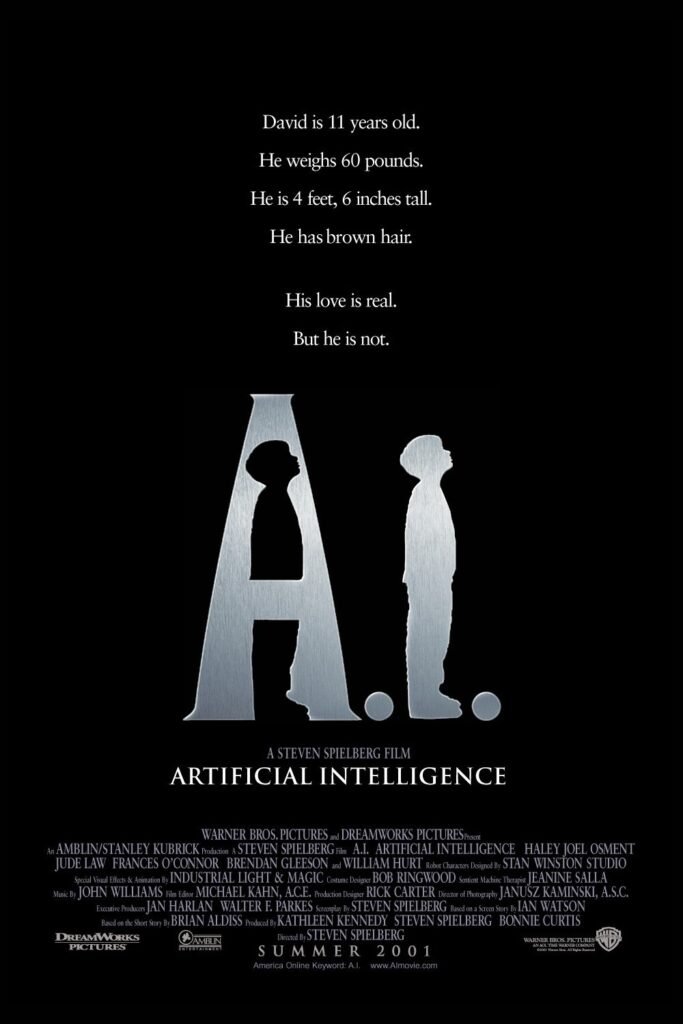


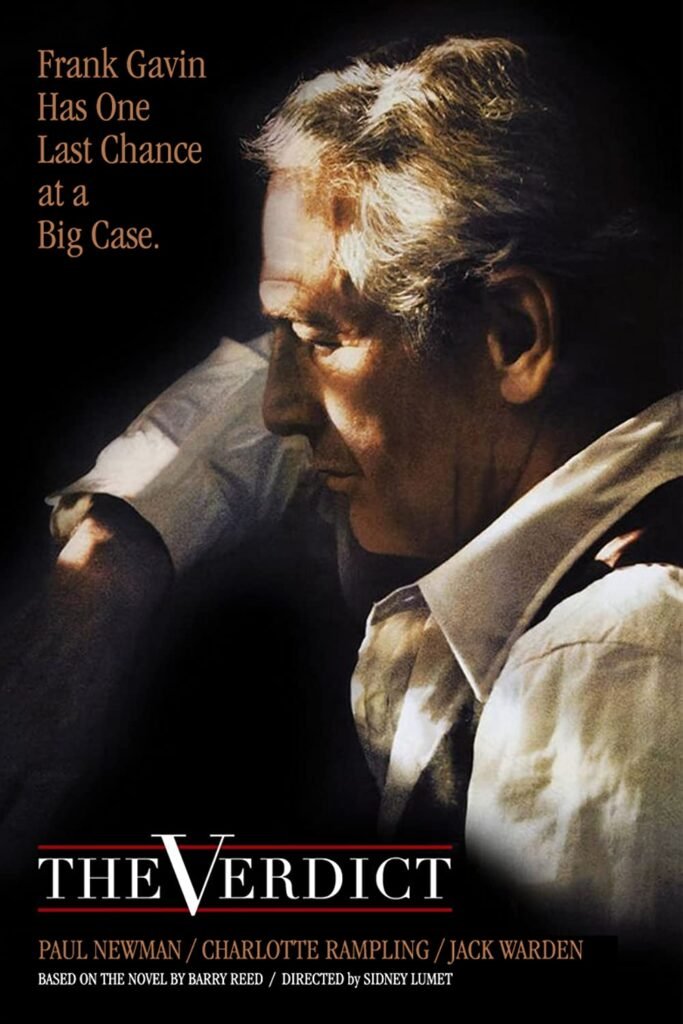
Other axiology thought experiments
Logic
There is no doubt in anyone’s mind that, if the CoViD pandemic has taught us anything, it is the value of mental health and the importance of critical thinking. The avalanche of fake news and logical fallacies has tested everyone’s rationality as never before. Trump’s and other populists’ post-truth society collided with the health crisis to create an environment where only those with a healthy scepticism could find any bearings in relation to the truth.
This is because it’s no longer enough to have access to facts, everyone has access to them these days, if we cannot understand how evidence and arguments are used and, more importantly, misused!
Therefore, it is my absolute belief that it is also the role of Scouting to cultivate logic and reason within its membership, as these are intellectual tools which are not always highly promoted in formal education.
There are two general directions where I feel our learning opportunities should be offered in Scouting:
1. Understand the meaning and value of premises, reasoning and conclusions
Just as the other areas of philosophy, logic and reasoning can be approached in a playful manner, beyond interpreting mathematical patterns.
A study on the impact on teaching philosophy for youth (16-19) in non-formal education, done in 2018 in Slovakia, has shown that after only two months of using philosophical reflection within a community of inquiry (the equivalent of our patrols, so to speak) the average critical thinking score of the participants increased by more than 25% compared with that of the control group (as measured by the Watson-Glaser critical thinking appraisal test).
Easily the most important element in achieving an increased level of critical thinking is the capacity of identifying and assessing the main elements of an argument: premises, reasoning and conclusion. An argument can be unsound if any of its elements is untrue or flawed. Both true premises AND a sound reasoning are needed for a conclusion to be valid.
Often endless debates happen because the two sides do not see that both their reasoning are sound, but the premises each of them start from are different. Debates between religious people and atheists are almost always starting from different premises, which means that no universally accepted conclusion could ever be drawn. This is the reason why I stopped watching those famous (in the early 2000s) debates between Dawkins and D’Souza – they were, to a large extent, a dialogue among deaf.
2. Learn to recognise logical fallacies
The challenge of considering different premises in a debate is often insurmountable: once the opposite view does not accept as truth that the Earth is 4.5 billion years old, that the laws of physics cannot be broken or that stars thousands of light years from each other cannot influence human destiny, there is little to be done in terms of argument.
However, for the arguments themselves, as they are not judged as either true or false but as sound or flawed, here we can objectively evaluate their value, especially if the premises are similar. Flawed arguments are a feature of fake news and they’re often identified as logical fallacies. There are a lot of them around and it is vitally important to be aware and able to recognise them for any critical thinking to happen.
When it comes to providing opportunities for learning logic in Scouting, I would suggest we mainly focus on evaluating the soundness of an argument and identify logical fallacies. There are numerous articles, books and other resources dedicated to identifying logical fallacies and we, as Scout leaders, should create activities and opportunities for Scouts to be able to practice critical thinking through identifying them.
The simplest activity involves giving participants definitions of the most common logical fallacies to study beforehand and then play a game of identifying them in a clearly polarised debate (in a video or written form). You may create two teams and allocate points for every fallacy identified.
You can also consider using highly partisan websites, starting with the batshit crazy ones, such as Infowars but then also looking into content proposed by more mainstream ones, such as PETA, Greenpeace or Fox News.
Of particular importance for me is applying this to social media content or advertising campaigns, especially those targeting young people – here is a nice example of fallacies in ads and a video describing the 10 most common fallacies used in media.
There are also websites with interactive games in relation to logical fallacies and there is also (at least) one good game to be played on mobile phones – Cranky Uncle
A number of interesting online tests may be proposed to our Scouts and have the results discussed in the patrol. Ex: https://www.clearerthinking.org/
Conclusion
- Philosophical reflections can complement, extend or replace the topic of spiritual development in Scouting by exploring metaphysics, axiology, epistemology and logic thought experiments and questioning. The patrol might act as a community of inquiry.
- The peak moments and the peak-end rule may contribute to a better use of spiritual moments in camps and activities
- The study of logic is becoming increasingly important in order to spot and combat misinformation and fake news
- There is no need for in-depth leaders’ knowledge in order to offer philosophical reflection moments in Scouting, in the same way it is not needed to have a priesthood qualification to organise a Scouts’ Own.


Fusce dapibus, tellus ac cursus commodo, tortor mauris condimentum nibh, ut fermentum massa justo sit amet risus. Maecenas sed diam eget risus varius blandit sit amet non magna. Donec sed odio dui. Vestibulum id ligula porta felis euismod semper.